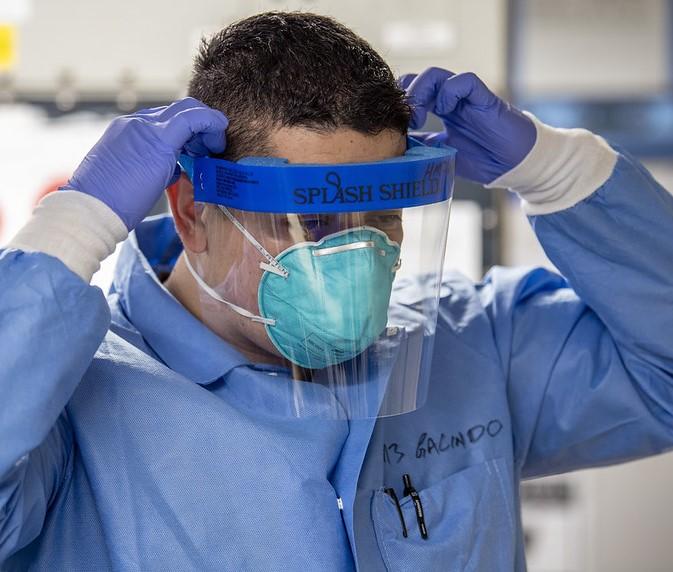The United States tracked more than 36,000 cases of COVID-19 yesterday, the third highest daily count ever. According to the Johns Hopkins University tracker, the country now has 2,369,806 cases, including 121,846 deaths.
In response to growing case counts across the country, the governors of New York, New Jersey, and Connecticut today announced they will require self-quarantine for 14 days of visitors from Alabama, Arkansas, Arizona, Florida, North Carolina, South Carolina, Texas, Utah, and Washington, Reuters reported.
"We have taken our people, the three of us from these three states, through hell and back, and the last thing we need to do right now is subject our folks to another round," said New Jersey Governor Phil Murphy. The Tri-State area was the hardest hit during the initial months of the US pandemic, with New York City the epicenter of viral activity.
Today, California confirmed 6,652 cases, Florida tracked 5,508 cases, and Arizona saw 3,591 cases. Those are all the highest cases ever reported in each state. And for the second day in a row Texas recorded more than 5,000 new cases today.
Yesterday Governor Greg Abbott urged Texans to stay home if possible.
"First, we want to make sure that everyone reinforces the best safe practices of wearing a mask, hand sanitization, maintaining safe distance, but importantly, because the spread is so rampant right now, there's never a reason for you to have to leave your home. Unless you do need to go out, the safest place for you is at your home," he said.
Washington, North Carolina require masks statewide
Last night Washington Governor Jay Inslee said he was making masks a "legal requirement" starting this Friday. Though Seattle was the first US outbreak region in February, the state had tamped down COVID-19 activity. But recent activity in Yakima County, home to Spokane, has left the region out of hospital beds.
Inslee said not wearing a mask in public, including in businesses, would be a misdemeanor charge. Children 5 years and younger, people who are deaf or have a medical condition preventing mask use, and people eating and drinking in public are exempt from using a mask.
Today North Carolina Governor Roy Cooper announced a statewide mask requirement and a halt in the state's reopening plan of at least 3 weeks amid rising cases. North Carolina was expected to start phase 3 of its reopening this Friday, which would further loosen capacity restrictions on open businesses and open gyms. Phase 2 is now in effect until Jul 17.
Like Washington state, North Carolina's mask mandate will be enforceable by law.
Virginia creates first pandemic workplace safety measures
Virginia will become the first state to craft workplace safety rules in light of the COVID-19 pandemic, a move state leaders said they had to do because they had little federal guidance or enforcement from the Occupational Safety and Health Administration (OSHA), the Washington Post reports.
According to the report, OSHA has issued only one citation in response to more than 4,000 coronavirus-related complaints. Under Virginia's rules, employers would be forced to notify workers of possible exposure to infected co-workers within 24 hours.
Sanitation and disinfection procedures would also be outlined. State inspectors will enforce the regulations, under penalties of up to $124,000 and the threat of closure.
Spring break cases show importance of contact tracing
Many colleges and universities have announced plans to resume campus instruction or stick with distance learning in the fall, and a study today in Morbidity and Mortality Weekly Report shows the important role contact tracing plays on college campuses to contain future COVID-19 outbreaks.
The study follows a COVID-19 outbreak among University of Texas-Austin students who contracted the virus during a spring break trip from Mar 14 to Mar 19. Officials identified 64 cases, including 60 cases among 183 travelers, 1 among 13 household contacts, and 3 among 35 community contacts. A total of 231 people were tested for the virus.
Approximately one fifth of persons with positive test results were asymptomatic (symptom-free). Only testing symptomatic contacts would have missed a significant percentage of cases, the authors said.
"As schools and universities make decisions about reopening, it is important that they plan for isolating and testing persons with suspected COVID-19, quarantining their contacts, and implementing suggestions described in CDC's Considerations for Institutes of Higher Education," the authors concluded.






















